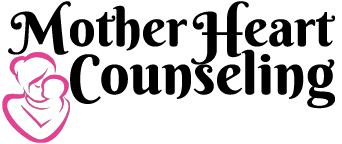Mother Heart Counseling provides therapeutic services to clients in the Salem/Mid-Valley Region.
This Isn’t What I Thought it Would Be..
Parenting is one of the most challenging experiences we face in our lives. It can be a source of both our deepest joy and most painful suffering. The process of becoming a new parent is permanently life-altering and can challenge us in ways we never predicted. Whether you're experiencing postpartum depression and anxiety or more mild growing pains associated with becoming a parent, help is available.
The Myth of the "Super-Mom"
There are many reasons we experience stress during the transition to parenthood. For moms, a primary cause of unnecessary stress is believing in the illusion of the "Super-Mom". This deep rooted cultural myth sets moms up for failure as they try to meet unrealistic, nearly impossible to achieve expectations. The incongruity between the reality of motherhood and our expectations about it can often cause moms to feel inadequate or to wonder if there’s something wrong with them. Moms are expected to be nothing less then perfect; to maintain their pre-childbearing bodies, to be perfectly loving, perfectly caring, perfect housekeepers, perfect cooks, juggle career and child-rearing perfectly, be perfect disciplinarians etc. These unreasonable expectations create a heavy emotional burden, often causing moms to experience feelings of chronic guilt, low self-worth, anxiety or depression.
Help is Available
Becoming a mama or papa is one of the biggest transitions in a person's life, one which reverberates inside us, impacting our roles, identity, relationships, and career. It can be extremely helpful to have an experienced professional to provide support and guidance during this tumultuous time. Counseling for pre- and postpartum moms and dads is dependent on the specific needs of each person and can include a focus on:
Psycho-Education
Self-Care
Providing Resources & Referrals
Social Support Assessment and Intervention
Relaxation Training
Sleep Hygiene Support
Grief and Loss Counseling
Couples Therapy
Parent-Baby Bonding
Depth Therapy
Postpartum Depression
If you’re experiencing symptoms such as anger, irritability, sadness, hopelessness, loss of interest in daily activities, sleep disturbances, or worthlessness you may be experiencing Postpartum Depression. Postpartum Depression is a Perinatal Mood Disorder that impacts up to 20% of postpartum women. Other Perinatal Mood Disorders such as Postpartum Anxiety and Obsessive Compulsive Disorder are also very common.
Dads and Depression
Between 10-20% of dads experience a Perinatal Mood Disorder such as depression during the first year postpartum. In fact, up to 50% of men whose partners experience postpartum depression will also develop it. Although my site is geared mostly towards moms I also work with men. If you're a dad experiencing postpartum stress or depression please don't hesitate to contact me.
Causes Of Perinatal Mood Disorders:
Many things are still unknown about the exact causes of perinatal mood disorders but experts agree it’s usually a combination of many factors including genetic and psychological predisposition, lack of adequate support, change in primary life role, hormonal fluctuations, sleep deprivation, poor nutrition and increased stress.
Risk Factors
If you've experienced some of the issues on this list, you may be more likely to develop a Perinatal Mood Disorder such as Depression or Anxiety.
Personal or family history of mental heath Issues
Perfectionism
Sensitivity to hormonal fluctuations
Insufficient social, emotional and practical support
Relationship distress
Financial hardship
Complications in pregnancy or nursing
Traumatic birth
Medical issues such as thyroid imbalance or diabetes
Mothers who’ve experienced the loss of a child and mothers who’ve undergone fertility treatments
Get Support
I am a Certified Perinatal Mental Health Professional which means I’ve had at least 2-years experience working with maternal mental health issues, have completed introductory and advanced training in perinatal mental health and passed an national certification exam.
Local and National Resources
Compass Perinatal Peer Support Group in Salem Oregon (971) 301-2678
Postpartum Support International Helpline: 1-833-943-5746
National Suicide Prevention Lifeline 1-800-273-8255

